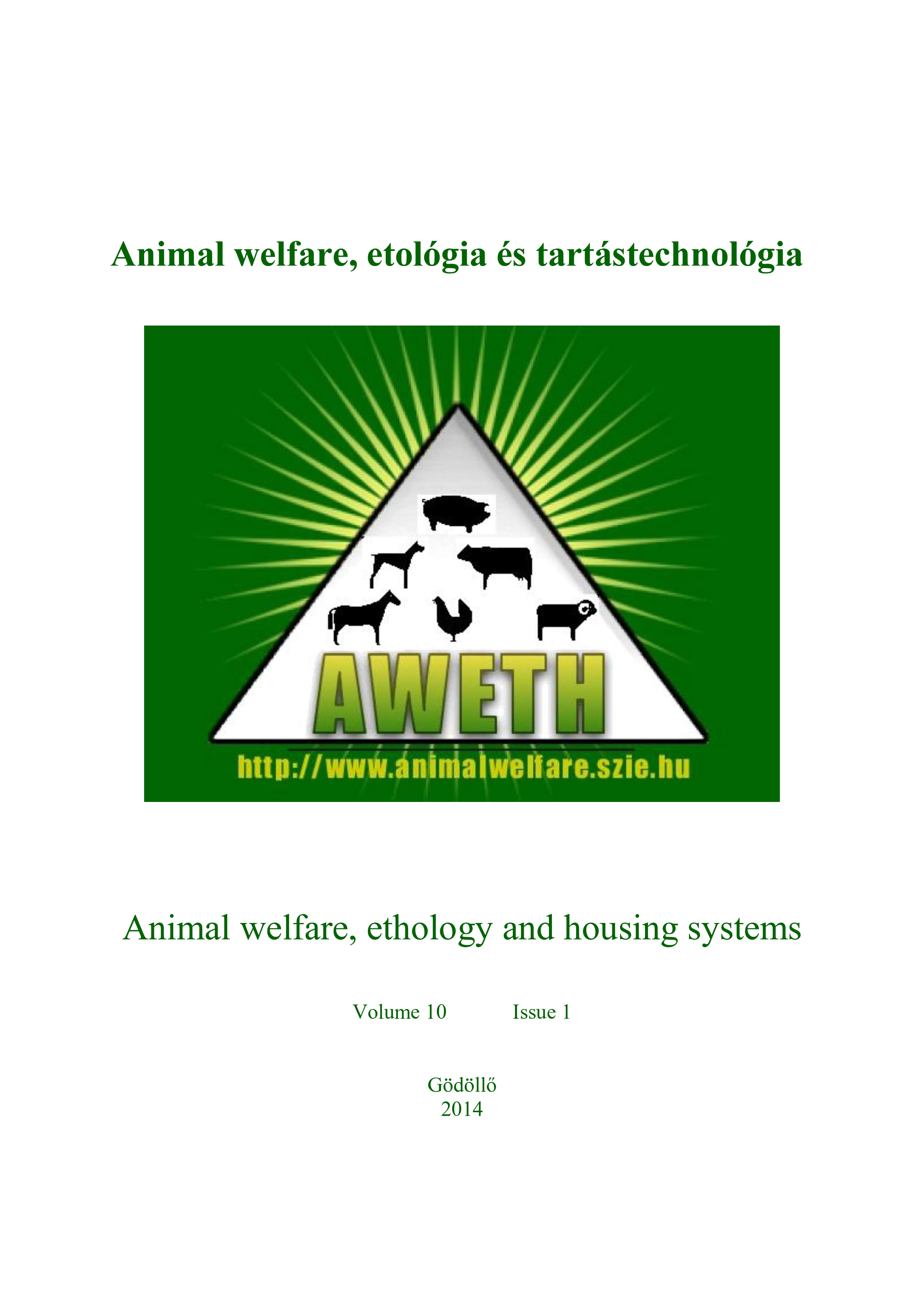Ethical assessment of genetic engineering
Abstract
Nowadays there is a heated scientific debate about the social and ethical aspects of the genetically modified organisms (GMOs), particularly the genetically modified (GM) crops and animals in the food chain (in plant production and animal breeding) and some other GMOs which are used for medicinal purposes. Therefore, my aim was to summarize the major ethical arguments as regards the GMOs. So far, several ethical concerns have emerged about GMOs, primarily, the potential threat to human health because the lack of entire knowledge of DNAs and genes, or that of comprehensive and long-term surveys of its biological risks. There is still no exact and long-term knowledge about what the reaction of the human body to a foreign protein produced by a gene is. Another concern is the possibility of emergence of new virus strains or virus combinations. The rise of antibiotic resistance is also an important risk due to the use of antibiotic resistance genes in the genetic modification. The potential danger to the environment, especially the decrease in biodiversity, could be another environmental impact of GMOs. Furthermore, the GMOs could have a negative impact on traditional farming practice, which is triggered by the excessive biotech corporate dominance. It must also be mentioned other ethical issues of GMOs, such as the “unnaturalness” of the technology, the problem of donor DNAs or genes in foreign recipient organs, concerns of cannibalism and animal welfare, different religious approaches and the question of patenting life.
References
Beauchamps, T. L., Childress, J. F. (1994): Principles of Biomedical Ethics (4th ed.). Oxford University Press. Oxford, pp. 97–106.
Bősze, Zs. (2000): Transzgenikus gazdasági haszonállatok. Magyar Tudomány, 45(5) 555–566.
Einsiedel, E. F. (2006): Public perceptions of transgenic animals. Rev. Sci. Tech. Off. Epiz., 24(1) 149–157. https://doi.org/10.20506/rst.24.1.1562
Fésüs, L., Zsolnai, A., Anton, I. (1998): Molekuláris genetikai markerek segítségével végzett szelekció háziállatokban. Állatteny. és Takarm., 47(2) 113–137.
Melo, E. O., Canavessi, A. M. O. et al. (2007): Animal transgenesis: state of the art and applications. J. Appl. Genet., 48(1) 47–61. https://doi.org/10.1007/BF03194657
Mesoudi, A., Danielson, P. (2008): Ethics, evolution and culture. Theory Biosci., 127(3) 229–240. https://doi.org/10.1007/s12064-008-0027-y
Rose, M., Grant, E., Adams, D. (2008): Genetically modified animals in the biomedical sciences: The challenge of rapid advances and ethical demands. Jap. Soc. Altern. Anim. Experim., 14. 141–144.
Sharma, A., Okabe, J. F. et al. (1996): Reduction in the level of gal(a1, 3) gal in transgenic mice and pigs by expression o fan a (1, 2) fucosyltransferase. Proc. Natl. Acad. Sci., 93(14) 7190–7195. https://doi.org/10.1073/pnas.93.14.7190
Streiffer, R. (2008): Animal biotechnology and the non-identity problem. Am. J. Bioeth., 8(6) 47–48. https://doi.org/10.1080/15265160802248427
Thompson, P. B. (2008): Animal biotechnology: how not to persume. Am. J. Bioeth., 8(6) 49–50. https://doi.org/10.1080/15265160802248278
Thompson, P. B. (2008): Current ethical issues in animal biotechnology. Reprod. Fertil. Dev., 20(1) 67–73. https://doi.org/10.1071/RD07184
Wahlsten, D., Metten, P. et al. (2003): Different data from different labs: lessons from studies of geneenvironment interaction. J. Neurobiol., 54(1) 283–311. https://doi.org/10.1002/neu.10173
URL: http://www.katolikus.hu/roma/mkpk-bioetika-2003.rtf – Az élet kultúrájáért. A Magyar Katolikus Püspöki Kar körlevele a bioetika néhány kérdéséről. 2003. 38–44. Letöltés: 2013.09.04.
URL: http://www.kormany.hu/download/f/a5/60000/gmo-rol%20roviden.pdf – A GMO-ról röviden. Letöltés: 2013.08.26.
Az 1998. évi XXVII. törvény a géntechnológiai tevékenységről.
A 2006. évi CVII. törvény a géntechnológiai tevékenységről szóló 1998. évi XXVII. törvény módosításáról.
Downloads
Published
Issue
Section
License
Copyright (c) 2014 Szabára Ágnes

This work is licensed under a Creative Commons Attribution-NonCommercial-NoDerivatives 4.0 International License.





